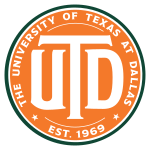Founded in 1969, The University of Texas at Dallas (UT Dallas) is a forward-thinking institution located in the heart of Richardson, Texas, a suburb of the dynamic Dallas-Fort Worth metroplex. Boasting a campus that spans over 500 acres, UT Dallas is home to more than 29,000 students and offers a wide array of academic programs. It prides itself on being a comprehensive public research university that combines the intellectual rigor of a tier-one research institution with an array of opportunities for hands-on experience and practical learning.
Unique to UT Dallas is its commitment to the fields of science, technology, engineering, and mathematics (STEM), alongside a sturdy foundation in business and management disciplines. The University houses the state-of-the-art Natural Science and Engineering Research Laboratory, which underscores its dedication to cutting-edge research. One of the standout initiatives of UT Dallas is the Callier Center for Communication Disorders, which is renowned for its advanced research and treatment for speech, language, and hearing disorders. Furthermore, the university demonstrates a strong entrepreneurial spirit, notably through its Institute for Innovation and Entrepreneurship, which actively supports students in transforming their ideas into viable business ventures.
UT Dallas is recognized for its contributions to public good and for fostering an environment where diverse minds collaborate to pioneer significant advancements across various sectors. The university's chess team has repeatedly secured national and international accolades, exemplifying the institution's excellence in critical thinking and strategy outside traditional academics. The School of Behavioral and Brain Sciences has won praise for its research into human development and neurological disorders, while the Naveen Jindal School of Management is highly ranked, reflecting the institution's ability to prepare its students for the competitive business world.
Despite its many successes, UT Dallas faces challenges, such as the intense competition from other established Texas universities within the realm of research funding and student recruitment. The rapid expansion of the university's student body and facilities also presents logistical struggles, potentially impacting the teacher-to-student ratio and the availability of on-campus housing. Additionally, while the university excels in STEM and business, some argue that its focus on these areas could limit the growth and development of other academic disciplines, leading to a less diverse academic portfolio compared to some other institutions.



